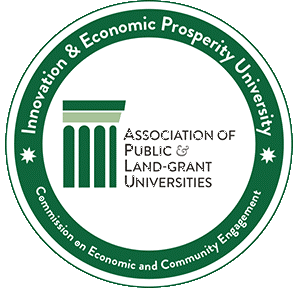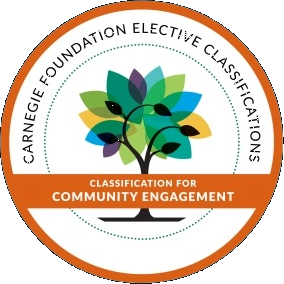2023 Recipients
Community-Engaged Creative Activity
Chelsie Boodoo, College of Agriculture and Natural Resources and College of Engineering
For resource-limited communities to be healthy and flourish, they require rapid and accurate diagnostics and treatment for a variety of diseases. Using the Global Alliance for Rapid Diagnostics (GARD), which provides affordable and accessible diagnostic technologies in communities throughout the world, this can be a reality by bridging the communication gap between researchers, manufacturers, and users of rapid diagnostics.
Chelsie Boodoo, has worked to expand GARD and teach members how to engage with their communities, locally and internationally, in order to freely share solutions, technologies, and ideas. Continuing to educate community members about rapid diagnostics will strengthen the healthcare system and save lives.
Community-Engaged Research
Alexandra Lee, College of Education
Alexandra Lee is seeking to better understand how K-12 students explore career paths in a way that promotes motivation, resilience, and achievement. The Aligning Student Passions with Regional Education Services (ASPiRES) project has allowed Lee to better situate students’ understanding of career development and the institutional practices that may support them in developing their career goals.
Her partnership with the Ingham Intermediate School District (IISD) has resulted in IISD leaders becoming aware of potential stereotype threats and equity concerns from language used and suggested careers identified for specific groups of students. As a result, IISD has taken steps to be more intentional with language regarding future career opportunities for students.
Commendation for Exceptional Effort in Community Engagement Scholarship
The following nominees for the Graduate Student Award for Community Engagement Scholarship were recognized with Commendations for Exceptional Effort in Community Engagement Scholarship for their outstanding contributions:
Sophie Huss, College of Natural Science
Sophia Huss’ research revolves around utilizing natural resources in mining to limit environmental harm. Her original work took place in the Bahamas, and lessons learned there translated to her efforts in Michigan. Throughout her research, Huss has been reminded of conflicting opinions regarding mining, and has remained deeply influenced by the ‘Four R’s’ of Indigenous research: respect, relevance, reciprocity, and responsibility. She is continuing to investigate ethical training for scientists and engineers who work with Indigenous people in mining communities.
Alyssa LaBerge, College of Social Science
Alyssa LaBerge and her team are working with the Ingham County 30th Circuit Court-Family Division to implement broad policy and practice changes using evidence-based methods to combat high rates of crime among adolescents and reduce the likelihood that youth will engage in criminal activity again. Through the risk needs responsivity (RNR) framework, services for offenders are individualized and “matched” to a juvenile based on their risk, needs, and responsivity to services. Much of LaBerge’s research is guided by reactions to strain, and coping mechanisms, with a particular focus on juvenile delinquency as a behavioral coping mechanism.









